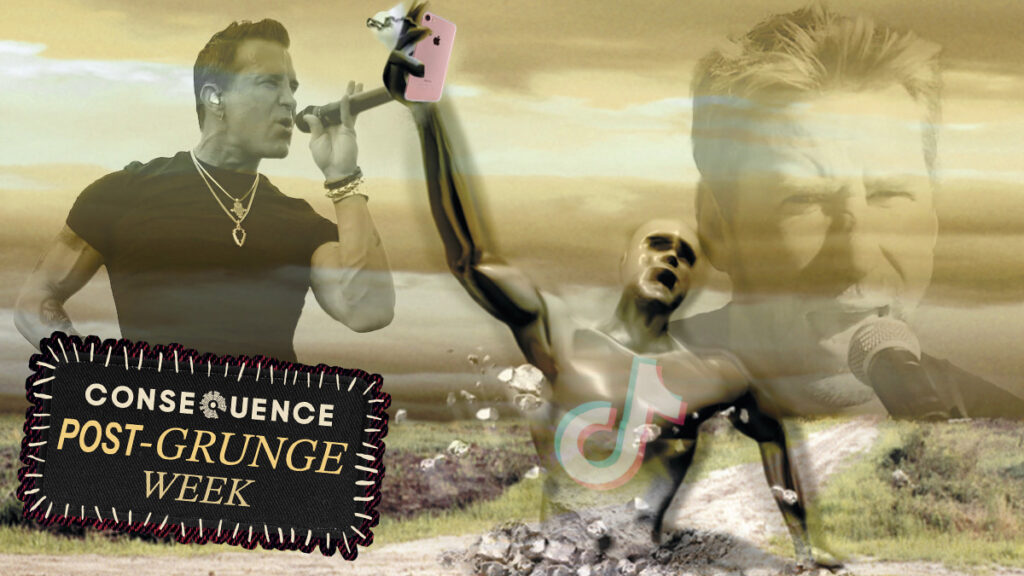Consequence continues to celebrate Post-Grunge Week with a reflection on how Gen Z has embraced the genre. See our picks for the 50 Greatest Post-Grunge Songs, and keep checking back throughout the week for more lists, artist-driven content, games, and more.
Creed, the multi-platinum selling band and rock media’s punching bag for the better part of two decades, is having a 2020s renaissance. After breaking up in 2004 and again in 2012, bearing the brunt of countless jokes at their expense along the way, the group announced a return in 2023 to (ahem…) wide open arms. Sure, they were always popular, but this time around the tide of goodwill seems to be in their favor, and they can thank Gen Z for being a major contributing factor in making that a reality.
Around the time many Zillennials were sucking on pacifiers, Creed released Human Clay, an album that’s sold a whopping 11 million copies in the United States alone. Boasting mega-hits and radio mainstays like “With Arms Wide Open” and “Higher,” the record positioned Creed as one of the biggest rock bands on the planet — as well as one of the biggest targets. Entertainment Weekly referred to their work as “lunkheaded kegger rock sculpted from tiresome grunge riffs and aggressive discharge,” while the Los Angeles Times derogatorily called them “grunge twice-removed.” “The songs sound less like knockoffs of such standard-bearers as Pearl Jam and Alice in Chains than they do facsimiles of Seven Mary Three and Stone Temple Pilots,” the review continued.
“I think the initial backlash, some of it was just part of being so big, so fast — eight straight number one singles. I mean, we were all over the radio. You couldn’t escape us,” Creed frontman Scott Stapp recently told Consequence. “I think the initial narrative was completely created by kind of the elite, critical media, kind of the cool guy club, who liked bands that didn’t sell a lot of records. So it was a narrative that was kind of generated by that niche of the media and then propagandized out there to make people think that that was the voice of the people.”
But as much as it might have started out as the “cool guy club” rejecting the music of the masses, snobby critics fuming away at their typewriters weren’t the only subset that held contempt for Creed. Other musicians repeatedly took shots at the act, like the time Dexter Holland of The Offspring wore a “Even Jesus Hates Creed” shirt onstage, or when Limp Bizkit’s Fred Durst antagonized Stapp to the point of Stapp challenging Durst to a boxing match. And as far as the general public went, even while they dominated the airwaves and moved tens of millions of units, the hate wasn’t exactly quiet as the years went on. They were eventually voted the “worst band of the ‘90s” in a Rolling Stone readers poll – and “it wasn’t even close,” the magazine reported.
Creed were far from the only band who found themselves dealing with the dissonance of wild commercial success and widespread hate. In fact, most of the bands in their lane faced similar tribulations; especially as the genre’s momentum died out, the era of post-grunge, along with it’s angrier cousin nu-metal (which Gen Z has also reclaimed), became increasingly perceived as a “dark-age” of mainstream music, not unlike disco in the ‘70s.

